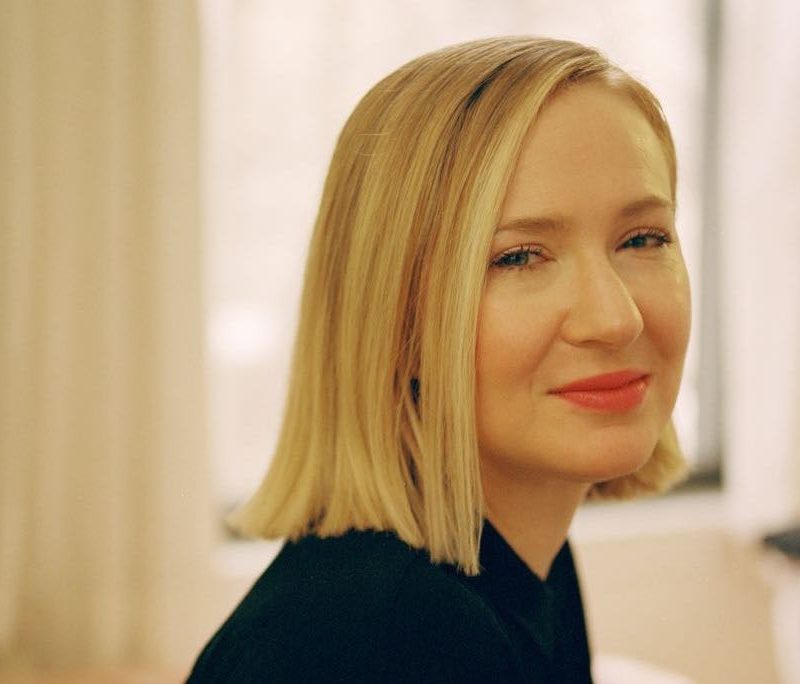Halley Feiffer is Now an Optimist, but—don’t worry—she’s still angry at the patriarchy
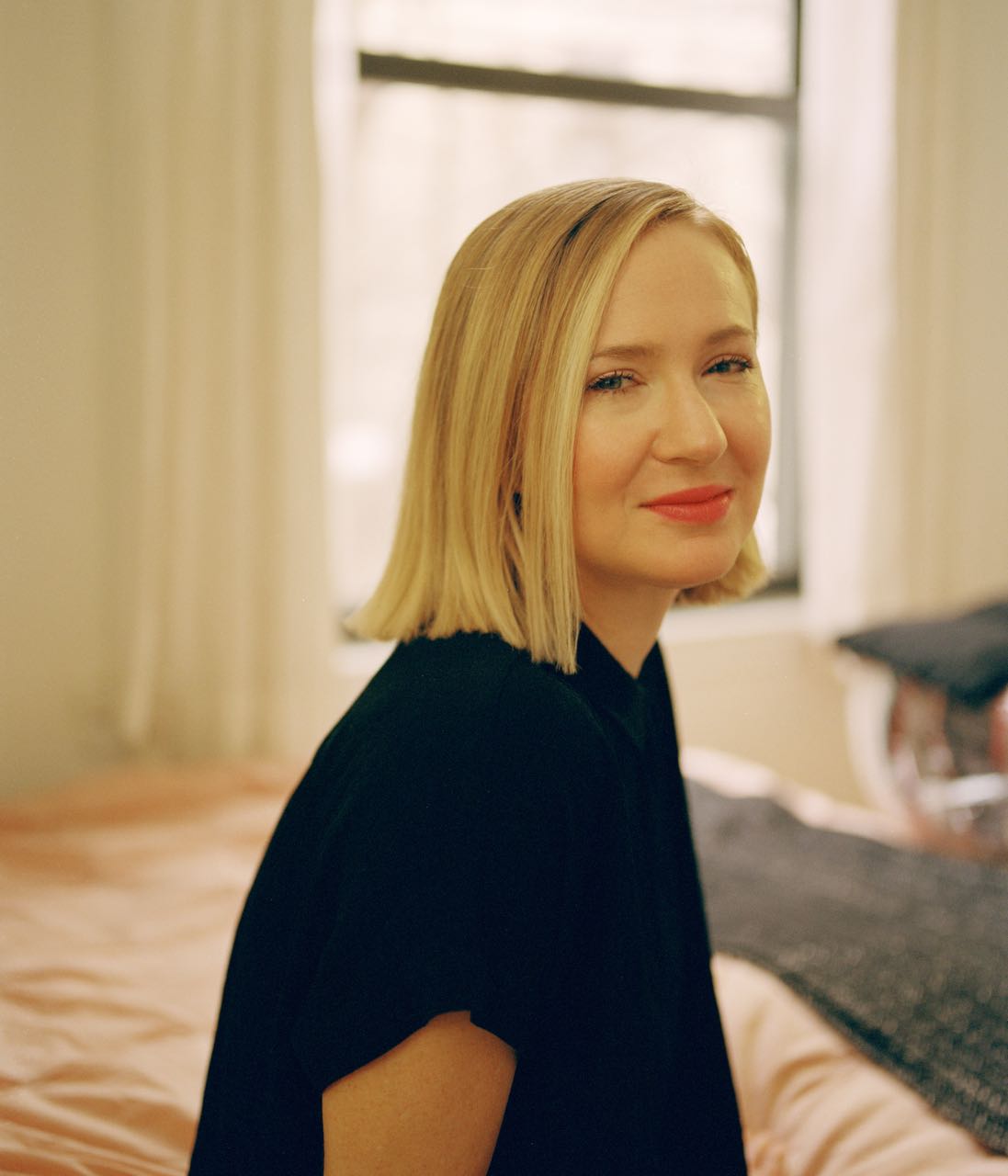
Halley Feiffer has turned the fireplace in her Brooklyn apartment into a bookcase, and one of the books in that bookcase is Jonathan Franzen’s Purity, a copy of which also resides in my bookcase, which is the standard non-fireplace variety. It’s one of those books your eye goes to whether you want it to or not because it’s large and white—after all, it is named Purity. When I read it a few years ago, I remember thinking, “Oh, this is one of those things where the main female character’s concerns are entirely plot-based and the main male character gets both the plot and the greater meaning of it all.” In Halley Feiffer’s new play The Pain of My Belligerence, the plot and meaning is driven by Cat (played by Feiffer) and her desire and difficulty at figuring out how to function in a world where the rules—created by men—don’t work for her. A theme in a number of Feiffer’s plays is coercive social forces and women who both recognize them and get trapped by them. As an actress and writer, her work also tends to focus on externalizing women’s interiority. I recently spoke with her about the inspiration for her new play, the line between fiction and autobiography, critical responses to her work, and more.
What inspired you to write The Pain of My Belligerence?
I wanted to write the play because of a personal reason and then, ultimately, a more global reason. I had observed a phenomenon in which I, a woman who I think can confidently say in every other area of life — in work, in friendships, in family relationships — found myself quote-unquote “owning my power,” was then continually signing on for my own subjugation in [romantic] relationships. The more that I talked to my female friends about this, I noticed that it was not a phenomenon that seemed to be specific to me. I was observing women who outwardly were quite confident, successful, and self-assured, but who in their relationships with men found themselves really abandoning themselves. This was a phenomenon that I really wanted to explore in the play. I started writing a play about a complex, loving, but in some ways quite toxic relationship between a man and a woman as a way to really examine what I was observing to be the corrosive effects of the patriarchy on men and women alike. Then the election happened, and I realized that this relationship was actually just a microcosmic example of the insidious effects of patriarchy on all of us, especially in this country, especially at this time.
How did you decide on the form of a play? It is all two-person scenes that are also very much relationships in isolation.
I didn’t see another way, really. I had a pretty traumatic experience with a very famous Lyme disease specialist. In the play, the [main] character contracts Lyme disease as she is falling in love/becoming obsessed with this man, and it’s hard to tell which makes her sicker and whether the two illnesses, the physical and the emotional, are related. As with all of my work, the play is not remotely autobiographical, but it is inspired by events and feelings that I’ve had. In many ways, I view it as a sort of nightmarish alternate reality of what my life could have been had things gone quite differently.
So I had this very traumatic experience with a middle-aged white male, very famous Lyme disease doctor where he was verbally abusive to me in a way that I just didn’t feel he would have been if I were a man. It was traumatizing, and I became even more interested in, as we’ve seen with our president, the very dangerous side effects of being a white man who is told that he can do anything, and believes it. So I had the idea of incorporating that scene or that moment or that story into this play and really exploring this woman’s relationship with this Lyme disease specialist. But as I started writing the first scene, it really became its own creature, and I realized that this was a much smaller play and that I could widen the scope in terms of its cultural implications.
I think it’s quite important for it to feel very claustrophobic, and the set will help us with that, too. This is my third time collaborating with [set designer] Mark Wendland, and I’ll soon collaborate with him for a fourth time on our next show. He’s a genius, and so is [director] Trip [Cullman]. What they’ve helped us create is this incredibly insular world where these two people are utterly detached from reality and from anyone who can remotely hold them accountable and guide them towards making better choices.
But I think it’s quite important to stress that the play does end on a hopeful note. I do believe there is hope. I do not believe this is a relentlessly bleak play. To that end, the design reflects that as well, and as the play goes on, it should feel a little less claustrophobic, to the point that at the end there is some sort of glimmer of a suggestion of freedom.
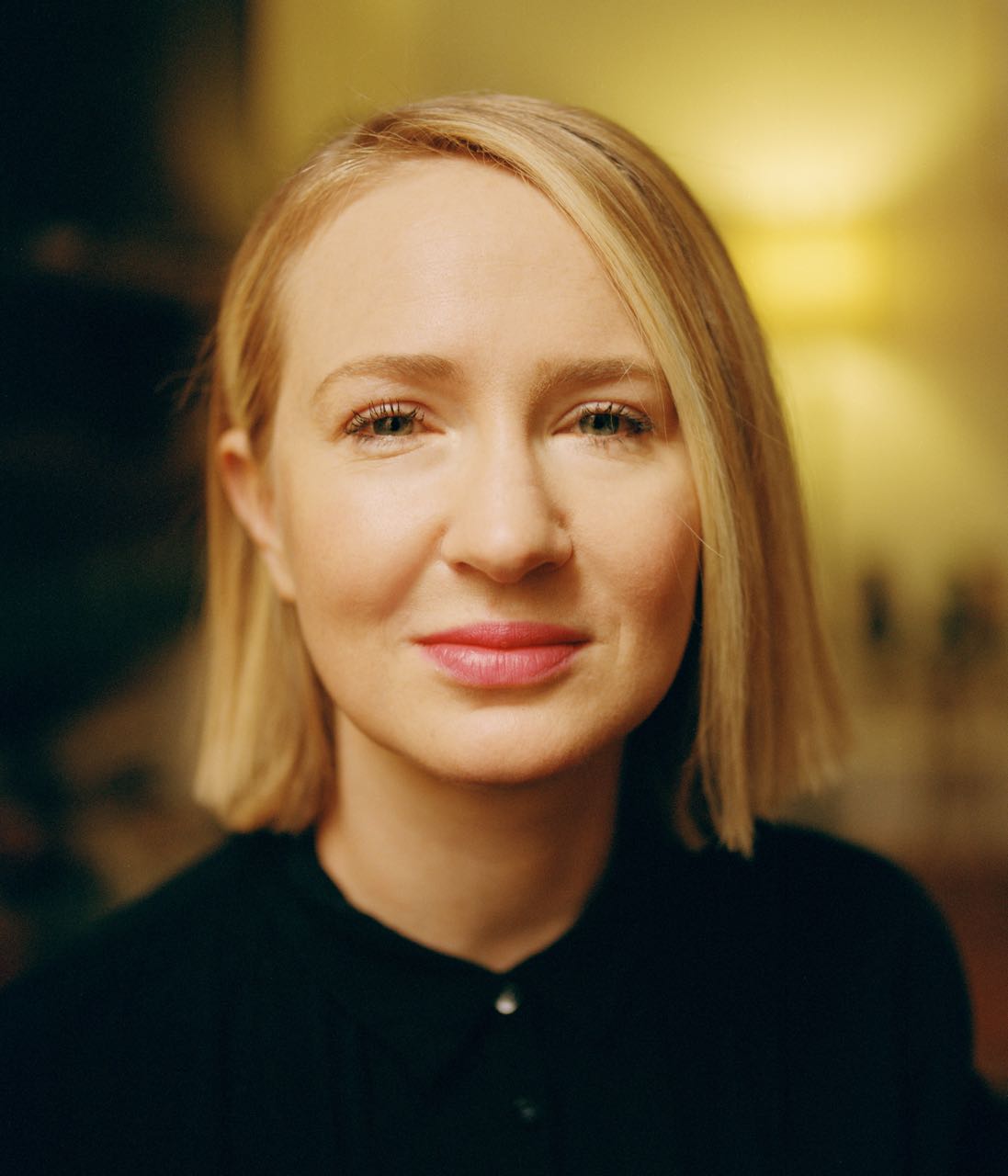
I want to talk a little bit more about the illness part of the play, because there is starting to be much more dialogue about women and illness and how that relates to female sexuality.
We talked about this in the mental health piece a little bit, too.
A little bit. And before we were talking officially we’d been talking about the Gwyneth Paltrow/Goop piece that had just come out.
I’m still upset.
And part of that piece mentioned that if doctors aren’t taking women’s pain and feelings seriously, they’re going to go elsewhere.
Right, right. I’m so interested in what you’re saying about sexuality. Because I have thoughts, but I’m curious about what you think, like how that relates, how the physical illness relates, to sexuality and vice versa.
Well, I only kind of know what I’m talking about here. But even going back to Freud and women coming in with psychological issues and having him link them to either having something to do with their reproductive organs or—
Hysteria. Well, that’s why the vibrator was invented—thank you, God—it was to treat hysteria. It’s really interesting. I don’t know enough about the history of it to sound as smart as I want to in this interview, but I will say from my own experience, I am just starting to emerge from debilitating illness. I really wasn’t able to date for the last six or seven years, I wasn’t able to make that a priority. I really tried, but it felt irresponsible because I wasn’t available for an actual relationship because I would spend a third to two-thirds of the week incapacitated. That’s a big reason why I switched from acting to writing; you can write lying down and feeling like your body’s on fire. You can’t act in a play like that.
So, for me, I found it to be very bleakly ironic that I have this illness, but that I also feel it is exacerbated by the pains of being a woman and being continually sublimated and brainwashed into finding my own sublimation seductive. Gloria Steinem herself says that she believes her mother, who had a chronic illness, ultimately died of the patriarchy. It is real, and I do find it ironic that this illness that I have, that I do believe is tied to my inherent sublimation as a result of being a woman, prohibited me from engaging with men for many years.
I just saw a reading of a new play of yours, Saying Goodbye to the People I Love from My Bathtub, a month or so ago. In both that play and this one, you have a young female character. They’re used in different ways, but they each provide a representation of both an adult woman and a prepubescent girl. What was the genesis and your interest in that?
I wrote these plays back to back, and they’re quite related. They’re so different, but the themes are similar in that they are exploring the effects that illness and patriarchy have on women both mentally and physically and how all of these phenomena are related.
I was talking to Adam Greenfield here [Associate Artistic Director at Playwrights Horizons] about my work, because he was writing an essay about it for the program. He’s been a supporter of my work since before I was produced. He directed a reading of a play I wrote maybe ten years ago. He was saying that it started out much more hopeless. The older I get and the healthier I get physically and emotionally, the less hopeless I feel, to the point where today I’m very optimistic. Even though the world is in such a wounded place, I have what is perhaps illogically this burning flame of hope within me. I think that’s reflected in the stuff that I write. I don’t want to give too much away, but I do think in both these plays it felt really important to me to see someone of an older generation affected by or affecting someone of a younger generation, so either receiving hope and rejuvenation from that person or passing along a message that they wish they had received earlier, and in so doing perhaps receiving that message now in a way that they didn’t realize they needed.
The older I get, too, the more I love myself and every part of myself and every stage of myself, and love the person I was as a child and love the person I am now, whereas ten years ago, I probably would have said in many ways I hate myself. I think in order for me to love myself, I have to love the child I was. In many ways, both of these plays are me exploring the relationship between the woman I am today, with all my flaws, and the child that I used to be, and trying to reintroduce them on a continual basis.
In a few of your plays, there are also characters dealing with depression and other mental health issues. How was that to write? Both in the practical sense of making something people see as passive into something active onstage, and also how so many of our ideas about depression are based off of how they have historically affected white men.
And same with Lyme disease. I think one reason that Lyme disease is such an epidemic now is because, for some reason that we don’t understand yet, it affects, overwhelmingly, women. So it’s not prioritized in terms of studies.
It’s really interesting because, for me, I actually have never struggled with chronic depression. I have alcoholism, and I’m in recovery now for ten-plus years. I definitely have had anxiety. I think I had one period where I had a couple weeks of being depressed, which I think is technically chronic depression. But I can only think of one. For me, the mental illness that I do identify with is alcoholism, for sure. And hand-in-hand with that it co-mingles with a lot of other stuff. I don’t really see the character in this play, at least, as being depressed. She’s also not an alcoholic. I guess I’m saying that because I actually don’t have experience with chronic depression—especially today, I woke up jubilant. I’m not really joking. I share that so people know that it’s possible because I didn’t know that was possible to feel that way.
In terms of depression and writing characters who are depressed, the character in the bathtub play [that I’m writing] is probably depressed, and I think that’s why that play still needs some cracking, because it is hard to activate her. In this play, this woman is furious. I think part of why she is so ill is because she has to bury her rage in order to exist in society, as we all have to do as women, arguably, in order to succeed. And bury so much else—bury her desires, bury her truth. I think that accounts for the tension in the play, which is that we see that she wants to be, say, and do things that she can’t in order to succeed, and this sublimation festers within her until she eventually either has to die or change.
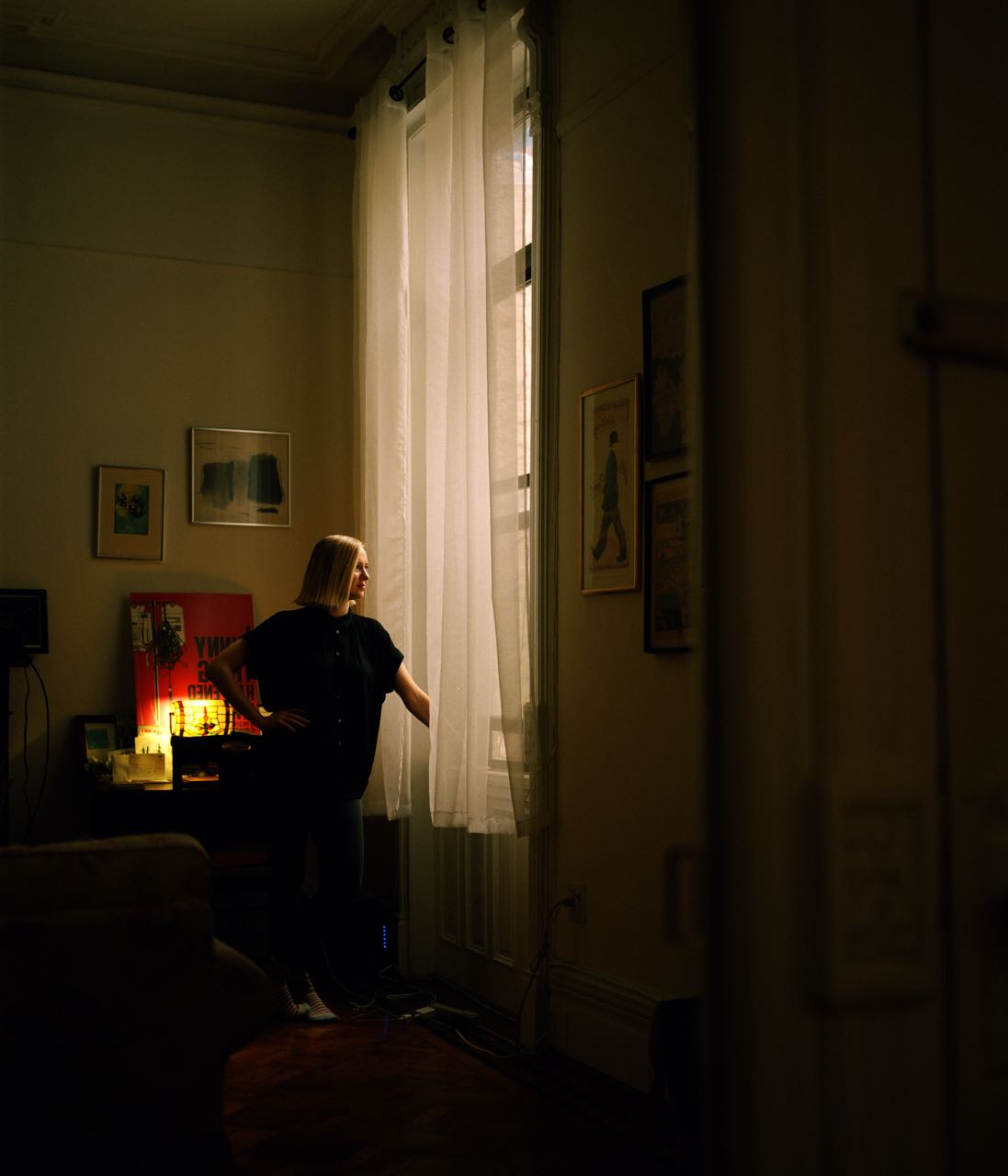
You’ve talked a few times about one review of your work where—
Someone was like, “This girl needs therapy.” Yeah.
I have noticed that sometimes your work gets labeled as having unlikable female characters. What’s your reaction to that?
I think inequality is coded into us, and I think misogyny and sexism is something that we’ve all been indoctrinated with. So we can see men behaving in certain ways in life and onstage that we not only condone but applaud and find hilarious, and then we can see women behaving in those same ways and we’re appalled.
A good example is my play, How to Make Friends and Then Kill Them, which premiered around the same time as Small Engine Repair by John Pollono at MCC. The plays are very different, and I really liked that play and I thought that was a beautiful production. But I was quite interested in the differences between the reviews of those plays. Both of those were ensemble plays about people of the same gender who treat each other pretty horribly for about 90 minutes. His play was lauded and my play received pretty mixed reviews, and a lot of them were centered on how horrifying it was to watch women treat each other terribly. I struggled to understand how a play four blocks away about men who are treating each other terribly was acceptable in a way that mine wasn’t. There was also one review of my play that called it, quote-unquote “catty,” which I like mentioning because I think it’s important for us to be really rigorous about the ways in which we use language to describe work by marginalized people because I, to this day, don’t understand how a text can be catty. And catty is unarguably a gendered word. I do believe if my play were written by a straight man, it would not have been called that.
Ryan Murphy, who I really admire, has said a similar thing about his work being called campy. He doesn’t like the word “camp.” He calls it baroque because he thinks if he were a straight man, no one would call him campy. I feel the same way about a lot of the adjectives that are used to describe female playwrights and a lot of the criticisms of our work.
This is sort of related. A little bit ago, you volunteered that the play isn’t autobiographical. There’s a lot of anecdotal evidence to suggest that people assume work by women is autobiographical in a way that they don’t with men. What has your experience been like with that, especially when you have the added thing of having parents that people can Google?
Exactly. I’ve been at times bemused and at times dismayed by people’s fascination with whether stuff I write is autobiographical or not. At the same time, I understand the interest. I’ve been quite curious about the choice to really include references to my personal life, specifically my family background, in many reviews. I think it’s just another indicator of our collective obsession with famous white men in our culture. I’m very often called “the daughter of Jules Feiffer.” I do understand why that is interesting and notable, and I think sons of famous fathers are also noted for that. But I do feel that it is a shame that we sometimes seem challenged to separate the work from the personal history. That’s partly why I wanted to act in this play, as a way of commenting and playing with our collective fascination with the blurry line between autobiography and fiction.
There’s more of a conversation about it in literature than theatre, but even the idea that those classifications of fiction vs. nonfiction, rather than just narrative prose, is a particularly Western thing.
Did we talk about the Sheila Heti controversy? That’s quite interesting, too. Both of her books, Motherhood and How Should a Person Be?, she calls them novels. And many critics, including female critics, are like, “These aren’t novels. This is about you.” She’s like, “I’m not dumb. I wrote novels and I called them novels not by mistake.” Again, it’s completely in line with what we’ve been talking about, which is not believing women and not letting them make their own decisions.
That is in line with what we were just talking about, too, in terms of the blurry line between autobiography and fiction. Many people call my play I’m Gonna Pray For You So Hard the, quote-unquote, “play about my dad,” which, anyone who’s ever met my dad or seen us interact knows that that’s not true, including my dad. He loves that play. It’s very offensive to me and small-minded that people think I wouldn’t have the imagination to write a fictional relationship. I’m not going to claim that it’s not inspired by a few small arguments or moments or questions that have been raised as a result of my relationship with my dad and other people, but I do feel that we’re hurting and limiting ourselves by taking such a myopic view of other people’s work in relation to their personal history.
Has that ever made it hard for you as a writer, when you’re actually sitting down to write?
Weirdly—and I can’t explain it—I have almost no fear about what I’m going to write. I have almost no fear about performing in this play. I have almost no fear about what anyone thinks. I think I can very faithfully say I do not care. I really do not. I believe this is a calling. I believe it is more important than achieving a certain result or pleasing or displeasing anyone. I’m lucky, speaking of family, to have a very supportive family that encourages me to be as rigorously honest in the work I do as I can because both my parents are artists, and they know that this is our deepest source of joy. So why wouldn’t I pursue that as relentlessly as I would pursue anything?
Can you talk a little bit more about that? I feel like this is a gendered question, but I also think it’s interesting. You know the Joan Didion documentary that came out a while ago? There’s that part where they ask her about writing the essay “Slouching Towards Bethlehem,” and he asks her about one of the major moments in the piece, and is like, “What was it like to walk in and see that small child covered in X?” There’s this long pause, and everybody is expecting her to be like, “Oh, it was horrible.” And she instead is like, “It was gold,” because she’s answering as a writer. But there is that dissonance between the expected reaction—the one she’s supposed to have as a woman and as a mother—and her actual reaction, which was a writer doing her job. For you, when it comes to putting the work first, has there ever been any sort of struggle with that?
I’ve gone through a few different phases and, knock wood, my physical and emotional health now is better than it has been since I got sick with Lyme, I believe in part as a result of my prioritizing work less fiendishly, which I believe is a result of working through my own indoctrination of the patriarchy. I spent many, many years since I decided to become a writer slavishly working, to the point that I was neglecting my body, neglecting my relationships, and neglecting my spirit. I believe, in many ways, that contributed to my physical decline. I had an epiphany very recently when I went on vacation and planned way too many activities for my own vacation and got very, very physically sick and I realized if I’m getting sick on my own vacation, something’s wrong.
I realized that I had been overworking both in terms of work, but also in terms of my life in general—really devoting myself to making other people happy and achieving what I thought to be goals that I needed in order to be okay. And I wasn’t really making other people happy because it turns out I’m not that important to other people’s happiness, thank God. And those goals don’t make me okay. My sense of okayness needs to come from within me, and really, my only job is to make myself happy because I can’t be useful if I’m debilitated physically and emotionally. Very recently, I have shifted my priorities. I still work very hard, but my primary aim is to seek balance in my life, which I didn’t have before. My first priority is my emotional and spiritual health, and everything else has to come second. Because of that I’m quite healthy physically and emotionally today, and desperately in love with my life, and have really fruitful relationships, and I’m able to walk away from relationships that no longer serve me and am available for intimate relationships, all kinds of them. These are things that I didn’t know I could do or even that I wanted for years when I was really behaving like a robot and suffering immensely.
I think it’s important to say, too, that it might sound like I’m blaming myself, and in many ways I am certainly responsible, but I also feel that this phenomenon is not specific to me. Women have to work harder than men in order to succeed. We are taken less seriously. We are objectified. We are continually undermined. This subjugation can come in very insidious ways, such as, quote-unquote “teasing” and “playful comments” at the hands of men. But all of these microaggressions, in my experience, culminate in a message that we need to push ourselves beyond our limits in order to catch up, which, P.S., we’ll never do. So I think what I realized was that I had to stop trying to catch up and just forge my own lane. That’s what I’m doing now, and it feels very good.
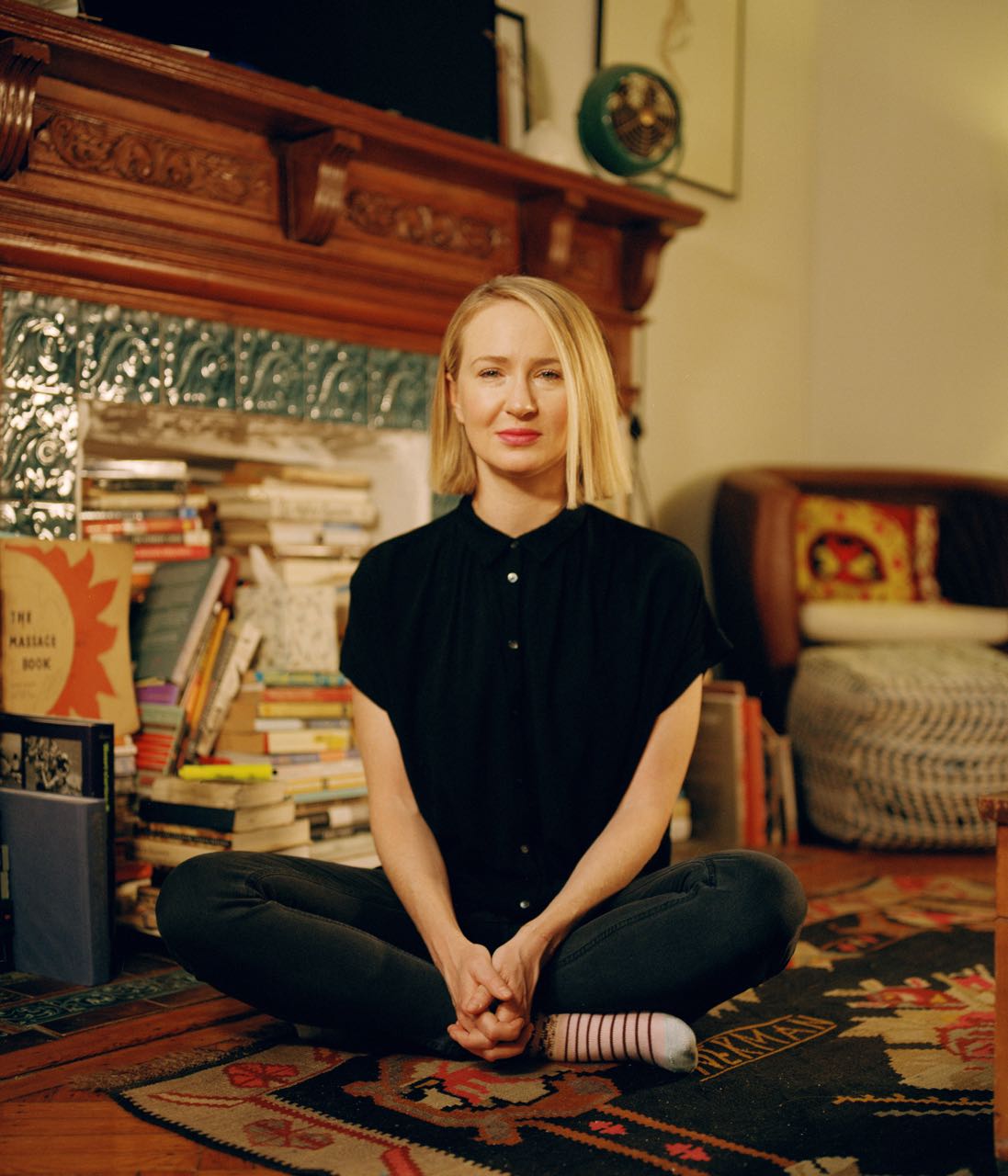
When we talked for that physical appearance piece, you said one of the challenges was also that there was an expectation or interest in women when she’s 25 and seen as a wunderkind. And then, as you get older, that there’s a shift that happens where you sort of become less interesting to people, even though you’re actually becoming better at what you do. And then the more of an expert you become at something and the more self-assured, you also shift to being seen as threatening and not just cute and adorable. As you move more into your 30s, how do you see yourself changing and how you navigate your relationship to the industry changing?
The first thing that comes to mind is commenting on how self-assured, unapologetic women are threatening. That just reminds me of the Kavanaugh hearings. One thing that really struck me, among so many horrifying elements, was how demure Christine Blasey Ford was. That broke my heart because this is clearly a woman who’s been inculcated with the message that in order to be accepted, she needs to essentially behave like a little girl. At least that was my interpretation of it, but she’s probably right. I will say what’s cool about getting older is I just care less and less about what anyone else thinks, and if they find something about me threatening, that’s totally okay, and perhaps I’ve given them an opportunity to explore their own preconceived notions about how a particular type of person should behave. I also know that I’m not for everyone and I’m very at peace with that. What matters is that I like myself, and I really do. And when I don’t, I swiftly address that. And then I quickly like myself again.

